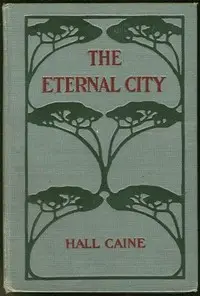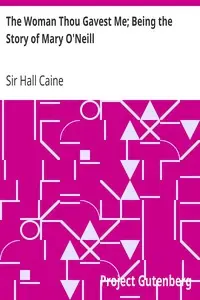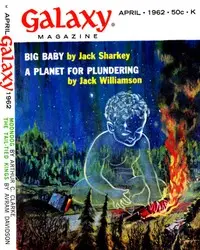"The Blind Mother" by Hall Caine is a novel written in the late 19th century. The story revolves around Mercy, a blind mother who longs to see her child, Ralphie, who she has never seen due to losing her sight shortly before his birth. The narrative explores themes of motherhood, love, loss, and the struggles of a woman defined by her blindness, as well as her relationships with her father and Greta, the child's caregiver. At the start of the novel, the serene beauty of the Vale of Newlands is juxtaposed with Mercy's poignant experience as she watches a children's procession pass by her cottage. She is unable to see them, yet her longing to connect with her child is palpable as she engages with her father, Laird Fisher, reflecting the deep emotional connections they share. The peaceful domestic setting gradually reveals tensions, particularly surrounding Mercy's blindness and the challenges of her motherhood. The opening sets a rich, evocative atmosphere while foreshadowing the struggles that Mercy will face as she grapples with her identity as a mother and her yearning for sight. (This is an automatically generated summary.)

The Blind Mother, and The Last Confession
By Hall Caine
"The Blind Mother" by Hall Caine is a novel written in the late 19th century. The story revolves around Mercy, a blind mother who longs to see her chi...
Sir Thomas Henry Hall Caine, usually known as Hall Caine, was a British novelist, dramatist, short story writer, poet and critic of the late 19th and early 20th century. Caine's popularity during his lifetime was unprecedented. He wrote 15 novels on subjects of adultery, divorce, domestic violence, illegitimacy, infanticide, religious bigotry and women's rights, became an international literary celebrity, and sold a total of ten million books. Caine was the most highly paid novelist of his day. The Eternal City is the first novel to have sold over a million copies worldwide. In addition to his books, Caine is the author of more than a dozen plays and was one of the most commercially successful dramatists of his time; many were West End and Broadway productions. Caine adapted seven of his novels for the stage. He collaborated with leading actors and managers, including Wilson Barrett, Viola Allen, Herbert Beerbohm Tree, Louis Napoleon Parker, Mrs Patrick Campbell, George Alexander, and Arthur Collins. Most of Caine's novels were adapted into silent black and white films. A. E. Coleby's 1923 18,454 feet, nineteen-reel film The Prodigal Son became the longest commercially made British film. Alfred Hitchcock's 1929 film The Manxman, is Hitchcock's last silent film.












